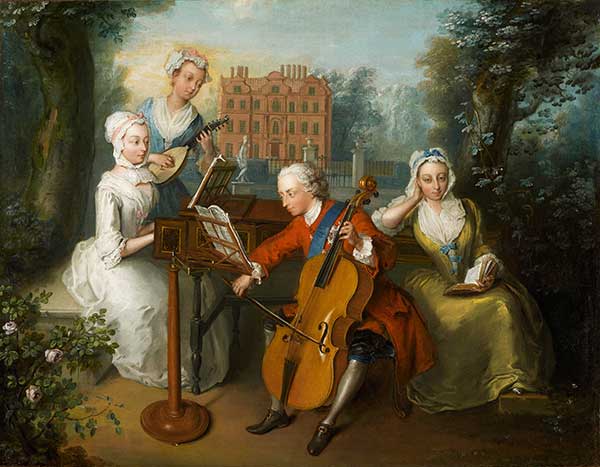Giovanni Carestini - great singer-castrato, opera star of Handel’s era. Carestini was born in 1704, in Italy near Ancona. It is known, that he studied singing with the great castrato - Antonio Bernacchi. In 1721 Carestini had his debut in Rome, in Scarlatti’s opera La Griselda. Carestini had soprano voice, which was quite high with the range of two full music octaves.
Giovanni Carestini started his collaboration with Maestro Handel in 1733. In fact, he replaced Senesino, who, by that moment, left Royal Academy. Carestini worked with Handel only two seasons, but how lush and colorful were the roles which Carestini sang during this short period: Ruggiero in Alcina and the title role in Ariodante. Carestini was successful, the public in London loved him, but after 2 seasons of collaboration with Handel, singer’s career began to decline.
In spite of the fact, that in 1733 Giovanni Carestini was successful among London public, in 1740 (when he came back to England again), the singer was received quite coldly. Same year Сarestini left to Italy. In 1743 Сarestini sang in Gluck’s opera Demofoonte, in 1744 he got a job at the court of Maria Theresa, from 1747 to 1749 Carestini was in Dresden, where he collaborated with Hasse; then from 1750 to 1754 he sang in Berlin, from 1754 to 1756 - in St. Petersburg and in 1758 Сarestini left to Naples.
According to Burney, Carestini began as a “powerful and clear soprano”, however during his music career, the voice of the singer was changed. Timbrally, Carestini’s voice was getting “darker and deeper”. Carestini was a good singer, but also he was a very good actor, moreover, his contemporaries found him being quite an attractive man.
Giovanni Carestini died in 1760.
*In this article I wrote that opera debut of the singer was in Rome, in 1721. Starting from that moment the career of Carestini really started taking off. However, before his debut in Rome, Carestini sang in Milan. In other words, Milan - the official debut place of the singer.
Author: Alisia Holainen




Comments
Post a Comment